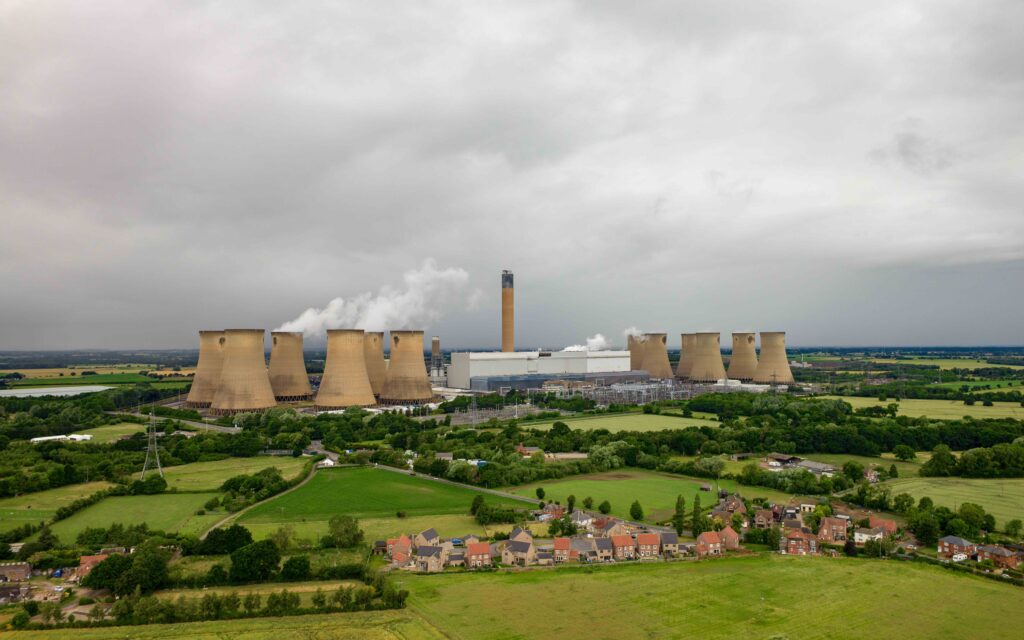UK electricity company Drax has announced a commitment of up to $12.5 billion over the next decade to build power plants in the US, aiming to capitalise on the country’s lucrative subsidies and the anticipated surge in energy demand.
Drax, which operates the largest power station in the UK, will develop these plants through its newly launched Houston-based subsidiary, Elimini. This initiative is expected to support the US economy amid an energy supply crunch as power demands rise, particularly with the increasing proliferation of data centers driven by artificial intelligence.
The planned facilities will generate electricity by burning biomass, such as wood, and capturing the resulting emissions. This method, known as bioenergy with carbon capture and storage (BECCS), is regarded as “carbon negative” in certain accounting frameworks since the biomass consumed also sequesters carbon during its lifecycle.
Drax plans to install carbon capture technology at its Yorkshire power station, contingent on government support. Under Elimini, the company is assessing over 20 potential sites in North America to construct up to five plants over the next decade, which would have a combined capacity of around 750 megawatts—enough to power over 600,000 homes. Each US facility is projected to remove about 1.5 million tonnes of carbon dioxide annually and qualify for more than $100 million in tax incentives under President Biden’s Inflation Reduction Act.
However, analysts warn that the ambitious plans may face challenges, as carbon removal technologies remain costly and have yet to be implemented at scale.
Drax’s expansion into the US comes amid a trend of European investors investing billions into the market to leverage clean energy subsidies provided by the Inflation Reduction Act. The US is also experiencing new energy demands from AI data centres, electrification, and industrial onshoring. Consultancy ICF predicts that electricity demand could rise by an average of 9% by 2028, posing risks to reliability and affordability.
Laurie Fitzmaurice, president of Elimini, emphasised the need for low-carbon electricity sources like BECCS to meet constant energy demands and mitigate the intermittency issues associated with wind and solar power.
Elimini also aims to market carbon dioxide removal credits from its global projects and has announced six offtake deals which will amount to a total of 28,000 tonnes of credits. Although the company did not disclose pricing details, past contracts have averaged around $300 per tonne.
